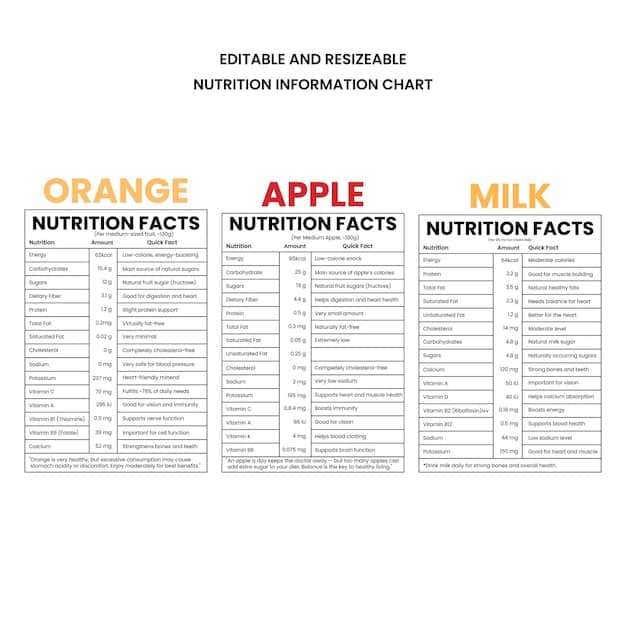Is Your Multivitamin Actually Working? A 2025 Analysis of Top Brands

Is Your Multivitamin Actually Working? This 2025 analysis delves into the effectiveness of top multivitamin brands, examining their ingredients, bioavailability, and overall impact on health to determine if they truly deliver on their promises.
Are you among the millions who pop a multivitamin every day, hoping to boost your health? The question of “Is Your Multivitamin Actually Working? A 2025 Analysis of Top Brands” is more relevant than ever, as we delve into the science and the marketing behind these popular supplements.
Multivitamins in 2025: A Shifting Landscape
The multivitamin industry is constantly evolving, with new formulations and brands emerging regularly. It’s crucial to understand the current state of the market to make informed choices about your health. What are the key trends shaping the multivitamin landscape in 2025?
One notable trend is the increasing focus on personalized nutrition. Companies are now offering customized multivitamins based on individual needs and deficiencies. But how effective are these personalized formulas?
Personalized Multivitamins: Hype or Help?
Personalized multivitamins promise to address your specific nutrient needs, but they often come with a higher price tag. Here are some factors to consider:
- Scientific Basis: Are the recommendations based on solid scientific testing?
- Transparency: Is the company transparent about the ingredients and dosages in their formulas?
- Cost-Effectiveness: Does the personalized formula offer a significant advantage over a standard multivitamin at a comparable price?
Another trend is the growing popularity of plant-based and organic multivitamins. These products appeal to consumers who are concerned about the source and quality of their supplements.

Plant-Based Multivitamins: Are They Superior?
Plant-based multivitamins often contain a wider range of phytonutrients, but it’s important to consider the following:
- Bioavailability: Are the nutrients in plant-based multivitamins easily absorbed by the body?
- Dosage: Do the multivitamins provide adequate dosages of essential vitamins and minerals?
- Certifications: Are the products certified organic and non-GMO by a reputable third-party organization?
In conclusion, the multivitamin landscape is becoming increasingly complex, with a wider range of options available to consumers. Understanding these trends is essential for making informed choices about your health.
Evaluating Key Ingredients: What to Look For
The effectiveness of a multivitamin largely depends on the quality and dosage of its ingredients. Knowing what to look for can help you choose a product that meets your needs. What are the essential vitamins and minerals that a good multivitamin should contain?
Vitamin D is crucial for bone health, immune function, and mood regulation. Many people are deficient in vitamin D, especially those who live in northern latitudes or have limited sun exposure.
Vitamin D: The Sunshine Vitamin
Ensure your multivitamin contains an adequate dose of vitamin D, preferably in the form of vitamin D3 (cholecalciferol). Look for a dosage of at least 1000 IU, especially if you have limited sun exposure.
The B vitamins are essential for energy production, nerve function, and cell growth. They include thiamin (B1), riboflavin (B2), niacin (B3), pantothenic acid (B5), pyridoxine (B6), biotin (B7), folate (B9), and cobalamin (B12).
- B12 Form: Is the B12 in the form of methylcobalamin, which is more easily absorbed than cyanocobalamin?
- Folate vs. Folic Acid: Does the multivitamin contain folate (the natural form) rather than folic acid (the synthetic form)?
- Adequate Dosage: Are the dosages of B vitamins sufficient to meet your daily needs?
Another key mineral is magnesium, which plays a role in over 300 enzymatic reactions in the body. Magnesium is essential for muscle function, nerve function, and blood sugar control.
- Magnesium Forms: Are there absorbable forms of magnesium such as magnesium citrate or magnesium glycinate?
- Dosage: Does the multivitamin provide an adequate dosage of magnesium to supplement your diet?
Ultimately, a well-formulated multivitamin should contain a comprehensive blend of essential vitamins and minerals, in forms and dosages that are easily absorbed and utilized by the body. Reading labels carefully and consulting with a healthcare professional can help you choose the right product for your needs.
Bioavailability Matters: Absorption and Utilization
It’s not enough for a multivitamin to contain the right ingredients; those ingredients must also be easily absorbed and utilized by the body. Bioavailability refers to the degree to which a nutrient is absorbed and available for use in the body. How does bioavailability impact the effectiveness of a multivitamin?
Some forms of vitamins and minerals are more bioavailable than others. For example, vitamin D3 is more readily absorbed than vitamin D2, and methylcobalamin (B12) is more readily absorbed than cyanocobalamin.
Several factors can affect the bioavailability of nutrients in a multivitamin, including:
- Form of the Nutrient: Some forms of nutrients are more easily absorbed than others
- Dosage: High doses of certain nutrients can interfere with the absorption of others.
- Interactions with Other Nutrients: Certain nutrients can enhance or inhibit the absorption of others.
The manufacturing process can also affect the bioavailability of nutrients in a multivitamin. For example, some companies use coatings or capsules that are designed to release the nutrients slowly over time.
Timed-Release Formulas: Are They Better?
Timed-release formulas claim to improve bioavailability by releasing nutrients gradually over several hours. However, the evidence supporting these claims is mixed. More studies are needed to determine whether timed-release formulas offer a significant advantage over standard supplements.
To maximize the bioavailability of your multivitamin, consider the following tips:
- Take it with food: Some nutrients are better absorbed when taken with food.
- Avoid taking it with coffee or tea: Caffeine can interfere with the absorption of certain nutrients.
In summary, bioavailability is a critical factor to consider when evaluating the effectiveness of a multivitamin. Choosing products with highly bioavailable nutrients and following the right dosages can maximize the benefits of supplementation.
Top Brands Analyzed: A 2025 Comparison
In 2025, numerous multivitamin brands compete for consumers’ attention. Let’s take a closer look at some of the top brands and compare their strengths and weaknesses.
Brand A is known for its comprehensive formulas and high-quality ingredients. However, Brand A products tend to be more expensive than other options.
Brand B offers a wide range of multivitamins tailored to different age groups and health conditions. Brand B products are generally more affordable, but the quality of ingredients may not be as high as Brand A.

Brand C is a popular choice for those seeking plant-based and organic multivitamins. Brand C products are made with whole-food ingredients and are free from artificial additives.
Brand Comparison Table
| Brand | Pros | Cons |
|---|---|---|
| Brand A | Comprehensive formulas, high-quality ingredients | More expensive |
| Brand B | Wide range of options, affordable | Quality of ingredients may vary |
| Brand C | Plant-based, organic, free from additives | May be less potent than other options |
When choosing a multivitamin brand, it’s important to consider your individual needs and budget. Read labels carefully and compare the ingredients and dosages of different products. Consulting with a healthcare professional can also help you make the right choice.
Potential Benefits and Limitations: What to Expect
Multivitamins can offer a range of potential benefits, but they also have their limitations. Understanding what to expect from a multivitamin can help you set realistic goals and avoid disappointment. What are the potential benefits of taking a multivitamin?
Multivitamins can help fill nutritional gaps in your diet. Many people don’t get enough of certain vitamins and minerals from food alone, and a multivitamin can help bridge the gap. Especially in groups with specific needs.
Who Benefits Most from Multivitamins?
- Pregnant Women: Essential for fetal development.
- Older adults: May have trouble absorbing certain nutrients.
- Those with Restricted Diets: Vegetarians and Vegans, those with food allergies.
Some studies have shown that multivitamins can improve cognitive function and reduce the risk of age-related cognitive decline, even if results are mixed.
While multivitamins can be a valuable addition to a healthy lifestyle, they are not a substitute for a balanced diet. Eating a variety of fruits, vegetables, whole grains, and lean protein is still the best way to get the nutrients your body needs.
Multivitamins are not a magic bullet. They can’t prevent or cure chronic diseases, and they won’t make up for unhealthy habits like smoking and excessive alcohol consumption.
To maximize the benefits of a multivitamin, combine it with a healthy diet, regular exercise, and other healthy lifestyle habits.
In summary, multivitamins can offer a range of potential benefits, but they are not a substitute for a healthy lifestyle. Understanding their limitations and combining them with healthy habits is essential for achieving optimal health.
Future Trends in Multivitamins: What’s on the Horizon
The multivitamin industry is constantly evolving, and several exciting trends are on the horizon. What can we expect from multivitamins in the years to come.
One trend is the increasing use of technology to personalize nutrition recommendations. Companies are developing apps and wearable devices that track your diet, activity level, and other health metrics. This information is then used to recommend customized multivitamin formulas.
AI and Multivitamins: A Glimpse into the Future
- Smart Supplements: Devices able to deliver a specific dose in real time due AI based needs analysis.
- DNA analysis: Further and more reliable genetics at home testing and recommendations.
Another trend is the growing interest in the microbiome, the community of microorganisms that live in our gut. Research suggests that the microbiome plays a crucial role in health and wellness, and some companies are developing multivitamins that support a healthy microbiome.
In addition to new technologies and ingredients, we can also expect to see changes in the way multivitamins are marketed and regulated. Consumers are demanding more transparency and accountability from supplement companies, and regulatory agencies are stepping up their oversight of the industry.
Overall, the future of multivitamins is bright. By focusing on personalization, scientific validation, and transparency, the industry can continue to innovate and provide consumers with safe and effective products.
| Key Point | Brief Description |
|---|---|
| 🌱 Personalized Nutrition | Custom multivitamins based on individual needs. |
| ☀️ Vitamin D Importance | Crucial for bone health and immunity; aim for 1000 IU. |
| 🧪 Bioavailability | Absorption is key; consider nutrient forms and timing. |
| 🔬 Future Trends | AI and microbiome integration for tailored supplements. |
FAQ
▼
Not necessarily. A balanced diet provides most nutrients, but multivitamins can fill gaps for those with dietary restrictions, malabsorption issues, or specific life stages like pregnancy.
▼
Consider your age, sex, diet, and health conditions. Look for key vitamins and minerals, and choose reputable brands that undergo third-party testing for quality and purity.
▼
Some people may experience mild side effects like nausea or constipation. High doses of certain nutrients can be harmful. Consult a healthcare professional before starting a multivitamin regimen.
▼
Not always. Price doesn’t guarantee quality. Focus on the ingredient list, dosages, bioavailability, and third-party certifications, rather than solely relying on the price tag.
▼
Generally, it’s recommended to take multivitamins with food to enhance absorption and minimize potential stomach upset. Follow the instructions on the product label or consult with your doctor.
Conclusion
As we navigate the evolving landscape of multivitamins in 2025, it’s clear that informed choices are key. By understanding your individual needs, assessing ingredient quality and bioavailability, and staying abreast of emerging trends, you can make the most of these supplements while prioritizing your overall health and well-being.





